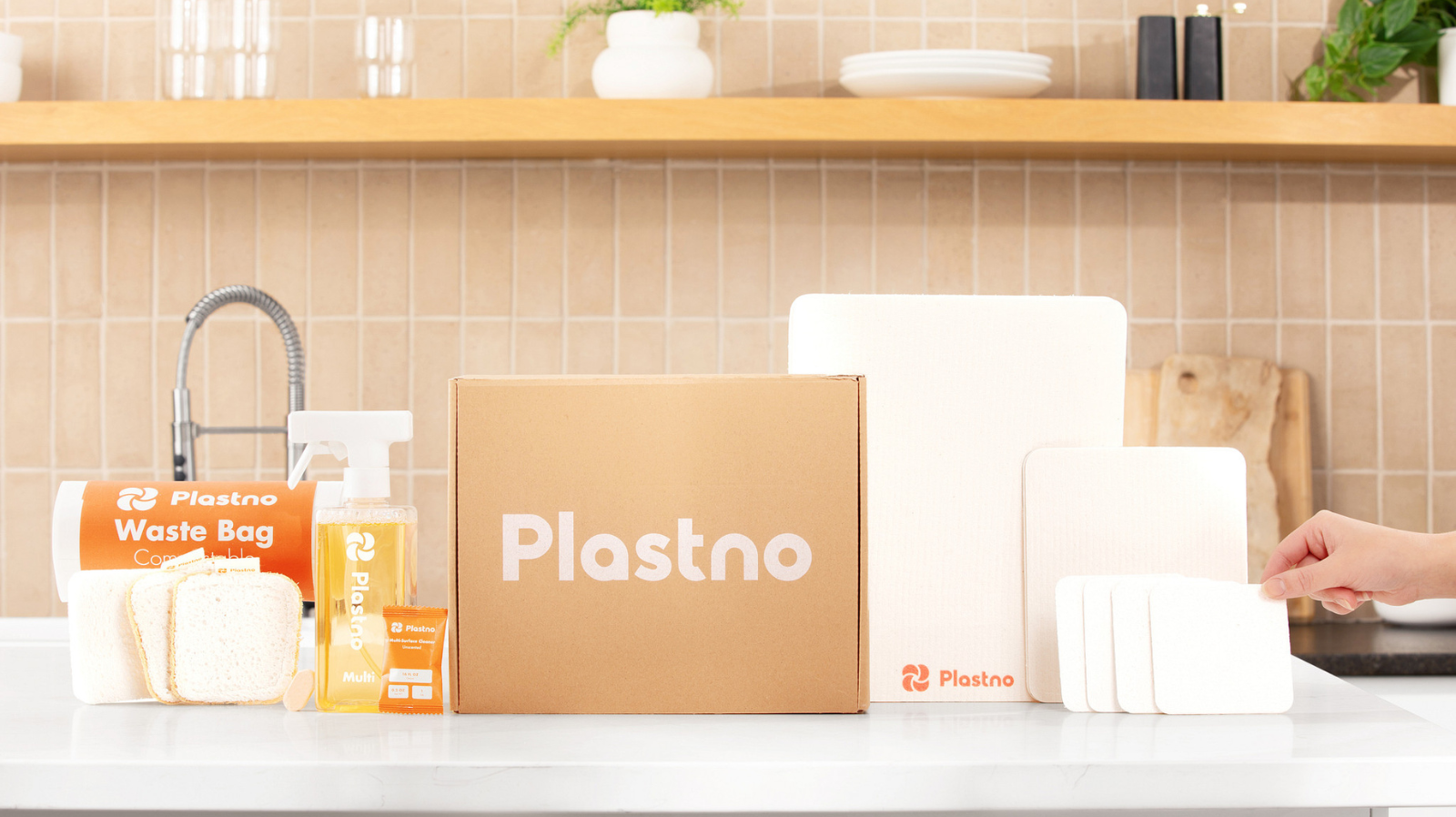Our Top Picks
Green Hive is reader-supported. When you purchase through links on our site, we may earn an affiliate commission. To understand our thorough approach to rating brands and products, explore our comprehensive methodology.
Our Top Picks
Green Hive is reader-supported. When you purchase through links on our site, we may earn an affiliate commission. To understand our thorough approach to rating brands and products, explore our comprehensive methodology.
Key takeaways
- Amazon has been a dominant force in the online retail business for a while
- Sustainability and ethics aren’t high up on Amazon’s business priority
- More ethical and sustainable alternatives have emerged to knock Amazon off its perch.
Introduction
Welcome to the ever-evolving world of online shopping! In an era where the digital marketplace seems synonymous with Amazon, it's easy to overlook the array of vibrant alternatives that await at the virtual crossroads. In this article, we're embarking on a journey that transcends the ordinary and ventures into the realm of fresh, exciting online shopping experiences.

While Amazon has undoubtedly established itself as a retail titan, the digital landscape is far from a one-shop wonder. There's a growing movement of platforms that offer more than just products – they offer stories, values, and a chance to break free from the mainstream. Whether you're a seasoned shopper looking to diversify your online interactions or a curious newcomer ready to explore, these alternatives to Amazon are poised to capture your attention.
Top online shopping alternatives to Amazon
If you're ready to take your money to a new online marketplace, we have some options for you. These alternatives to Amazon are not only about shopping but about reshaping your online consumer experience. Each platform we're about to introduce has its own flavor, niche, and community of sellers and buyers who share a passion for something beyond the transaction.
Made Trade — Home of ethical and sustainable goods
Made Trade is a Climate Neutral Certified, woman-owned, family-run small business that serves as a platform for ethically made and sustainably sourced goods. The company is committed to promoting equity, sustainability, and transparency in commerce. They prioritize artistry, fair wages, and quality craftsmanship, ensuring that each product is responsibly sourced and expertly handcrafted with sustainable materials. Made Trade carefully vets and verifies every product, partnering with over 150 brands, small businesses, makers, and artisan collectives that adhere to their core values.

Their application process involves extensive reviews of products, manufacturing processes, labor conditions, materials, fair trade status, and third-party verifications. Made Trade's eight core values include Fair Trade, Handcrafted, Made in USA, BIPOC Owned, Sustainable Materials, Recycled/Upcycled, Vegan, and Women Owned. Each product on their platform must align with at least two of these values, ensuring that customers can shop confidently while supporting ethical and sustainable practices.
Made Trade also emphasizes transparency about the origin and production of their goods, striving to create a more beautiful and equitable world through each ethical purchase. The company is dedicated to being a force for positive change, one ethical and beautifully crafted piece at a time.
The Little Market — A haven for artisans
The Little Market, a registered 501(c)(3) nonprofit, goes beyond commerce to champion artisans and producers in marginalized communities worldwide. Their mission is rooted in the belief that everyone deserves fair wages and dignified work. By connecting conscientious wholesalers and buyers with artisan groups, The Little Market showcases craftsmanship and provides educational resources on fair trade, human rights, and social justice.

Founded in 2013 by Hannah Skvarla and Lauren Conrad, The Little Market began as an online shop for fair trade products. What started small has blossomed into a platform that ethically sources artisan-made goods from over 35 countries. In 2023, they transitioned their model to focus on directly connecting wholesalers and buyers with artisan and producer groups. Despite the shift, their commitment to empowering underserved artisans remains steadfast.
The Little Market's portal is more than a marketplace – it's a conduit for change. Buyers seeking bulk orders can engage with artisan groups directly. The process is simple: apply for access, inquire about products, and connect with artisan groups to place orders. This portal embodies The Little Market's ethos of empowerment, fostering connections that enable dignified work and sustainable change.
In a world of evolving e-commerce, The Little Market stands as a testament to the power of purpose-driven shopping. It's a journey that transcends transactions, embracing artisans and their stories while catalyzing positive change within communities across the globe.
EarthHero — Changing consumer habits through sustainable choices
EarthHero's inception traces back to CEO Ryan Lewis' eye-opening experience witnessing the environmental toll of rampant consumerism abroad. The result? A marketplace designed to counter the tide of plastic-dominated landscapes. Established in 2017, EarthHero started with a modest selection of products but a monumental goal: revolutionize consumer habits through sustainable choices.

Today, EarthHero isn't just another place for you to shop online; it's a movement. The platform showcases thousands of products vetted through their rigorous 5-Pillar Sourcing Methodology, guaranteeing that each item aligns with the highest standards of sustainability. As a Climate Neutral Certified and Certified B Corp, EarthHero is actively reshaping business accountability, emphasizing the well-being of communities and the environment.
EarthHero's journey is far from over; it's evolving with even more ambitious goals. As they deepen their environmental education efforts, spotlight marginalized voices, and advocate for meaningful causes, EarthHero transforms shopping into a force for change. By breaking down access barriers, supporting eco-conscious brands, and embracing impactful certifications, EarthHero has become a beacon of sustainable consumerism. Every choice made on their platform becomes a step towards a world where sustainability knows no bounds.
Grove — Go beyond plastic
Grove Collaborative is at the forefront of sustainable shopping, prioritizing ingredient integrity across their brands. From personal care to beauty products, they maintain a stringent "No Way Ingredients" list, eliminating harmful substances like parabens, phthalates, and more. Embracing a cruelty-free ethos, every product aligns with their commitment to quality, transparency, and ethical sourcing.

Grove doesn't stop at responsible ingredients; they're trailblazers in plastic and carbon neutrality. With each order, Grove customers contribute to plastic neutrality, removing as much plastic waste as they use. Remarkably, Grove has eliminated over 13 million pounds of plastic from nature. Notably, their CarbonNeutral® Certified status extends to every facet, even offering carbon-neutral shipping on orders above $49. This dedication to offsetting their carbon footprint aligns with their mission for a greener future.
Grove excels in both performance and responsibility. Their products deliver exceptional results and prioritize sustainability, earning rave reviews from customers. Beyond product excellence, Grove actively partners with organizations like The Nature Conservancy to advance climate action and protect forests. Their commitment to a plastic-free future is unwavering, and their efforts, including carbon-neutral shipping, demonstrate how shopping choices can drive positive change for the environment.
Thrive Market — Save money on groceries
Thrive Market, founded in 2014 by Nick Green, Gunnar Lovelace, Kate Mulling, and Sasha Siddhartha, emerged from a deep desire to revolutionize healthy living accessibility. Witnessing the challenges faced by families striving for better nutrition, the founders were driven by empathy. Today, this empathy remains the cornerstone of Thrive Market's mission, shaping their approach to provide convenient and affordable avenues for healthier choices.

At Thrive Market, their commitment to change is built on three pillars. First, the Thrive Gives initiative ensures that every annual membership purchased sponsors a free membership for a needy family. Second, product curation adheres to rigorous quality, sustainability, and affordability standards. Their virtual shelves boast over 2,000 organic products, and the company leads in the regenerative organic movement. Third, Thrive Market is dedicated to environmental responsibility, striving to be carbon-negative by 2025 and maintaining TRUE Certified Zero Waste warehouses.
Thrive Market's impact extends beyond a mere online marketplace. It's a hub where conscious consumers make choices that reverberate positively. With a commitment to transparency, they curate products that meet their elevated standards, exclude restricted ingredients, and champion 100% non-GMO food. Their journey toward carbon negativity, plastic neutrality, and environmental restoration demonstrates how collective choices can shape a healthier and more sustainable future for all.
Hive — Your sustainable grocery store
A great online shopping experience awaits you when you use Hive. At Hive, sustainability isn't just a buzzword—it's a resounding call to action. Their mission is clear: to set new standards for sustainability in the grocery industry. Recognizing that perfection is a journey, not a destination, Hive prioritizes progress. They're building a community united by a shared goal: creating a healthier planet, one grocery haul at a time. Embracing the belief that collective efforts lead to meaningful change, Hive invites everyone to join their movement and shape the future of sustainable shopping.

Hive's unique approach is encapsulated in the Hive Fiv, an innovative sustainability certification process that sets them apart. This methodology meticulously evaluates products based on five key criteria. From ingredient integrity to recyclable packaging, low carbon footprints, commitment to social good, and products that are truly rave-worthy, the Hive Five ensures that every item meets at least three of these sustainability benchmarks. This thorough assessment empowers consumers to make informed choices without compromising on their values.
Hive's impact reverberates through every order, creating ripples of positive change. With over 1,900 products verified for fair or direct trade practices and sustainable agriculture, Hive is a platform that supports brands dedicated to ethical and environmental responsibility. They've achieved 100% carbon-neutral shipments, offsetting the emissions associated with their operations and deliveries. Furthermore, Hive's commitment to recyclable packaging, environmental and social certifications, and support for various causes highlights their comprehensive approach to sustainability.
Uncommon Goods — Bringing you one-of-a-kind products
For shoppers looking for the best customer service, Uncommon Goods is one option you should definitely look at. Founded in 1999 by Dave Bolotsky, Uncommon Goods emerged from a simple idea – to create an online marketplace that unites makers and shoppers in search of truly unique, one-of-a-kind products. This vision grew into a thriving reality, with Uncommon Goods now boasting a team of around 200 individuals based in Brooklyn and delivering exceptional goods across the country daily. Bolotsky's brainchild has evolved into a platform that values creativity, connection, and conscious commerce.

What began as a journey of craft show finds has evolved into a vast collection meticulously chosen by Uncommon Goods' dedicated buying team. Their assortment spans from globally sourced designs to in-house creations, all with a common thread of creativity and purpose. Uncommon Goods seeks out products that serve a purpose, address challenges, radiate beauty, and exhibit exceptional craftsmanship. The platform values sustainability, offering items made from recycled or reclaimed materials while steering clear of leather, feathers, and fur. With their in-house product development team, they continue to craft their own unique offerings.
Uncommon Goods is committed to more than commerce; it's a platform that uplifts makers and supports causes. They foster a deep connection between creators and consumers, valuing the stories behind the products. Furthermore, they embrace responsibility by prioritizing recycled or sustainable materials and eco-friendly packaging solutions. Through their Better to Give program, Uncommon Goods donates $1 (or $2 for Perks members) with every purchase to partner organizations such as Nest's Makers United, American Forests, and the International Rescue Committee. This commitment to doing good aligns with their founding as one of the first B Corporations in 2007, marking their dedication to driving positive change through business.
Etsy — Gifting made easy
Etsy is regularly featured on lists of best alternatives to Amazon. This is because the platform has consistently been delivering excellent experiences for buyers and sellers. Etsy is a global marketplace for unique and creative goods, offering a platform for sellers to connect with buyers seeking special and handcrafted items. The company prioritizes human connection in commerce, supporting creative entrepreneurs to turn their ideas into successful businesses. Their commitment extends to sustainability and responsibility, aiming to spread positive impact beyond their own operations.

Etsy provides a space for sellers to showcase their products and helps buyers discover one-of-a-kind items, connecting real people with creative and meaningful goods. They emphasize secure transactions and prioritize safety. Through their initiatives, Etsy generates income for small businesses, advocates for creative entrepreneurs' economic independence, and partners with nonprofits for gender equity and economic inclusion. The company is also committed to offsetting 100% of carbon emissions from shipping and packaging and has set a goal of reaching net zero emissions by 2030.
Beyond shopping, Etsy promotes inclusivity in their workforce and has exceeded goals in doubling sellers' economic impact. They stand as a community-driven platform that champions positive change, emphasizing sustainability, economic empowerment, and creative expression.
FAQs
Why do people use Amazon so much?
People use Amazon extensively due to its convenience, wide selection of products, and services like Prime that offer fast, same-day delivery. The platform's user reviews, ease of returns, and integration with devices like Amazon Echo also contribute to its popularity. Additionally, Amazon's frequent deals and digital content offerings add to its appeal as a one-stop shopping destination.
Why are so many people leaving Amazon?
Many people are leaving Amazon due to concerns over its labor practices, treatment of workers, and impact on local businesses. There have been reports of harsh working conditions, low wages, and insufficient worker benefits in Amazon's warehouses. The company's dominance in e-commerce has also raised antitrust concerns, leading some to support local businesses instead. Environmental impact and data privacy issues have also contributed to the decision of some individuals to move away from Amazon.
Does Amazon use greenwashing?
Amazon has faced criticism and accusations of greenwashing, which refers to portraying a false or misleading image of being environmentally friendly to attract customers while not making substantial efforts to reduce its environmental impact. Despite announcing initiatives like the Amazon Climate Pledge and setting goals for carbon neutrality, the company has faced backlash for not taking sufficient actions to address its carbon emissions and environmental footprint. Some critics argue that Amazon's actual practices, such as its extensive use of single-use packaging and energy-intensive data centers, do not align with its green image.
How much is Amazon contributing to climate change?
Amazon's contribution to climate change is complex and involves various factors. The company's carbon footprint is significant due to its vast operations, including data centers, transportation, packaging, and more. In 2019, Amazon announced the "Climate Pledge," committing to being net-zero carbon by 2040 and meeting the goals of the Paris Agreement ten years ahead of schedule.

However, critics argue that the company's emissions reduction targets and initiatives are not ambitious enough to address its massive environmental impact.
What is Amazon ethical responsibility?
Amazon's ethical responsibility compels the company to promote safe, inclusive, and respectful workplaces with its third-party suppliers and service providers. However, the company has faced scrutiny and criticism for alleged labor rights violations, inadequate working conditions, and concerns related to the treatment of employees in various parts of its global operations.
Is Amazon a moral company?
Considering the plethora of illegal activities surrounding it, Amazon is not a moral company. For example, Amazon avoided approximately $5.2 billion in corporate federal income taxes in 2021. In addition, the company has been criticized for its treatment of workers, with reports of poor working conditions, inadequate wages, and anti-union practices. These actions raise ethical concerns about the company's behavior and values.
Conclusions
The Amazon marketplace, once the dominant player in online shopping, has faced increasing scrutiny due to concerns about its impact on workers, the environment, and fair business practices. As a result, consumers are seeking alternatives that align with their values of ethical sourcing, sustainability, and transparency. Eco-friendly Amazon alternatives like Etsy, Grove, and Made Trade have emerged as powerful contenders, offering unique and responsibly made goods that prioritize people and the planet.
In an era marked by conscious consumption, these alternatives to Amazon demonstrate that shopping can go beyond transactional exchange. By supporting eco-conscious online retailers, consumers are not only making purchases but also fostering a more equitable, sustainable, and transparent marketplace. This will also spur third-party sellers to rethink their production process and move towards sustainability. Whether shopping online or at the local store, it is always important to take a step back and be more conscious of your purchases.
Amazon Avoids More Than $5 Billion in Corporate Income Taxes, Reports 6 Percent Tax Rate on $35 Billion of US Income. (n.d.). ITEP. https://itep.org/amazon-avoids-more-than-5-billion-in-corporate-income-taxes-reports-6-percent-tax-rate-on-35-billion-of-us-income/
Amazon Climate Pledge. (n.d.). US About Amazon. https://www.aboutamazon.com/planet/climate-pledge
Kagan, J. (2022). 501(c)(3) Organization: What It Is, Pros and Cons, Examples. Investopedia. https://www.investopedia.com/terms/1/501c3-organizations.asp
Sainato, M. (2022, November 28). US judge orders Amazon to ‘cease and desist’ anti-union retaliation. The Guardian. https://www.theguardian.com/technology/2022/nov/28/amazon-staten-island-new-york-retaliation

.png)


.webp)














.png)
.png)



.svg)
